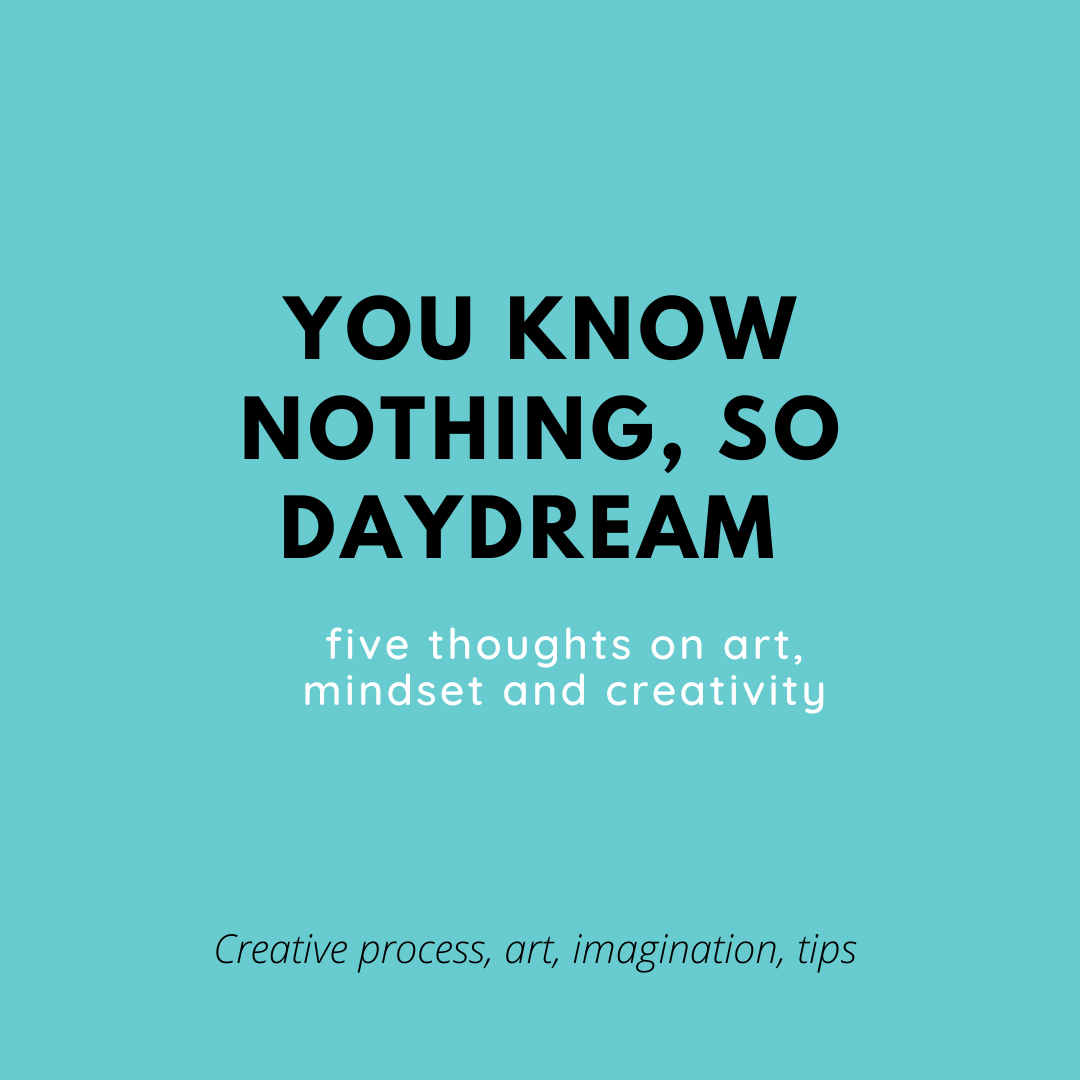You know nothing, so daydream (yet more five thoughts on art, mindsets, and creativity).
What is the world you come from?
There is some sort of environment you grew up in and are familiar with. Even if your discipline or focus involves fantasy or science fiction or far-out contrivances of imagination, you can still utilize what you know in some form. Embrace the world you came from in that sense, because it gives you a seat of power, a place of authority to integrate that into your work. Use what you know and make it work for you.
The familiar becomes less interesting.
As you get good at something, whether it’s knowledge or process or whatever form it takes - when you get good at something, it’s likely that a large part of your expertise or authority has come from repetition. This isn’t a bad thing. But…with repetition comes familiarity, and with familiarity can come complacency, boredom, and lack of originality.
How do you deal with this?
Perhaps first by developing the self-awareness that you’re not always going to be fresh and innovative. Everybody has a chronology, a journey of experience, and you can’t be at the beginning forever.
But be aware of complacency, of repeating the same mantras and ideas you’ve developed, and find ways of pushing yourself to accept the new, the different.
Find time to play. That will help.
Pretend you know nothing.
Watch a movie. Read a poem. Listen to a song. Now…try experiencing each of these with no preconceptions. Imagine you know nothing whatsoever about the author, the subject, the band, the backstory, the popularity or lack thereof, the formal rules associated with it…it sounds strange. It is. But it is also amazing how our experience with most things is so influenced by factors other than the content itself.
Twiddle and mosey and daydream.
Your brain can move fast and it can move slow. One is not better than the other. They both have their time and place. And clearly it’s not a binary on-off switch where it’s one or the other.
But in a modern society that rewards constant productivity and busy-ness, taking the time to de-focus and let your brain wander can be - is - a valuable way to slow your mind down from trying so hard to do something - and the associated tunnel vision.
Going on a walk, dozing, and simply thinking, observing, meditating is a gift you can give yourself that will benefit you - and your creative mindset - in many, many ways.
Accept that you’re going to change.
Maybe you’ve made or created or done something really, really cool. Maybe people loved it. Maybe it launched you.
Now what? What next? How do you follow that up?
There’s a reason it’s called “the sophomore slump.” Do you try to replicate what made the first thing work? Or do you go in a completely different direction? It’s tough.
That’s why knowing yourself and knowing what you bring to a process is important. If you have all the art supplies you could ever need, will that make you a better artist? If you have all the filmmaking equipment you could ever want, will that make you a better filmmaker?
If you do something really well, chances are it might open up opportunities and resources. But this can be a double-edged sword. What was it about the first thing that made it work? Did it have anything to do with scarcity? With not having everything you needed? With having to fight or scrap or agonize?
What do you lose when things get comfortable and get easier?
Accept that if you do what you’re doing well, then some things might get easier, and that’s going to change your mindset and process. It’s not necessarily a bad thing. But you should accept it, and also fight it, and also carry a self-awareness and self-realization of what you uniquely bring to what you do - and how that might change.









